I-TECH supported the implementation of a Community Oriented Primary Care (COPC) phased intervention to enhance ward-based Outreach Team (WBOT).
Continue reading “Clinic Ward-Based Outreach Team (WBOT) Program in South Africa”
I-TECH supported the implementation of a Community Oriented Primary Care (COPC) phased intervention to enhance ward-based Outreach Team (WBOT).
Continue reading “Clinic Ward-Based Outreach Team (WBOT) Program in South Africa”
The International AIDS Society (IAS) held their 22nd international AIDS conference (AIDS 2018) in Amsterdam 23-27 July 2018. This year, the conference objectives focused on advancing knowledge of HIV through research findings, promoting evidence-based HIV responses tailored to key populations, activating and galvanizing political commitment and accountability, addressing gaps in and highlighting the critical role of HIV prevention, as well as spotlighting the epidemic and HIV response in Eastern Europe and Central Asia.
Representatives from I-TECH were at the conference to present and discuss their posters:
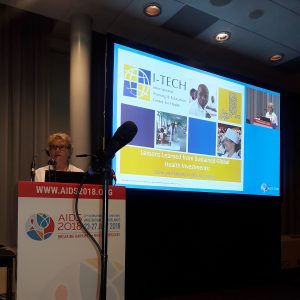
In addition to the two presentations above, I-TECH staff and faculty had a number of other abstracts accepted to the conference:
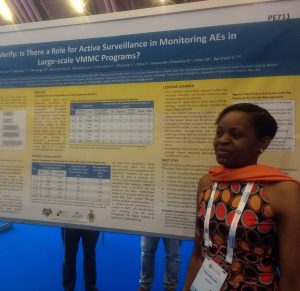

Training on leadership and management is a critical component of the University of Washington (UW) International Training and Education Center for Health’s (I-TECH’s) health systems strengthening efforts. To that end, I-TECH has worked closely with the UW Department of Global Health E-Learning Program (eDGH) since 2012 to offer a heavily subscribed online course on leadership and management to health care workers in low- and middle-income countries.
Designed and taught by I-TECH Executive Director and UW Professor of Global Health Ann Downer, Leadership and Management in Health (LMIH) is a 12-week course focusing on the practical leadership and management skills required for working in complex global health environments. Weekly modules include content on team building, accountability, supervision and delegation, conflict management, financial management, use of data for decision-making, and effective communication.
“I want to express my gratitude for giving me the opportunity to do the UW course on Leadership Management in Health. …I find myself going back to these documents again and again to understand and imbibe what is given. I feel that the simple narrative of the course material has made all the difference.”
–2016 course participant from India
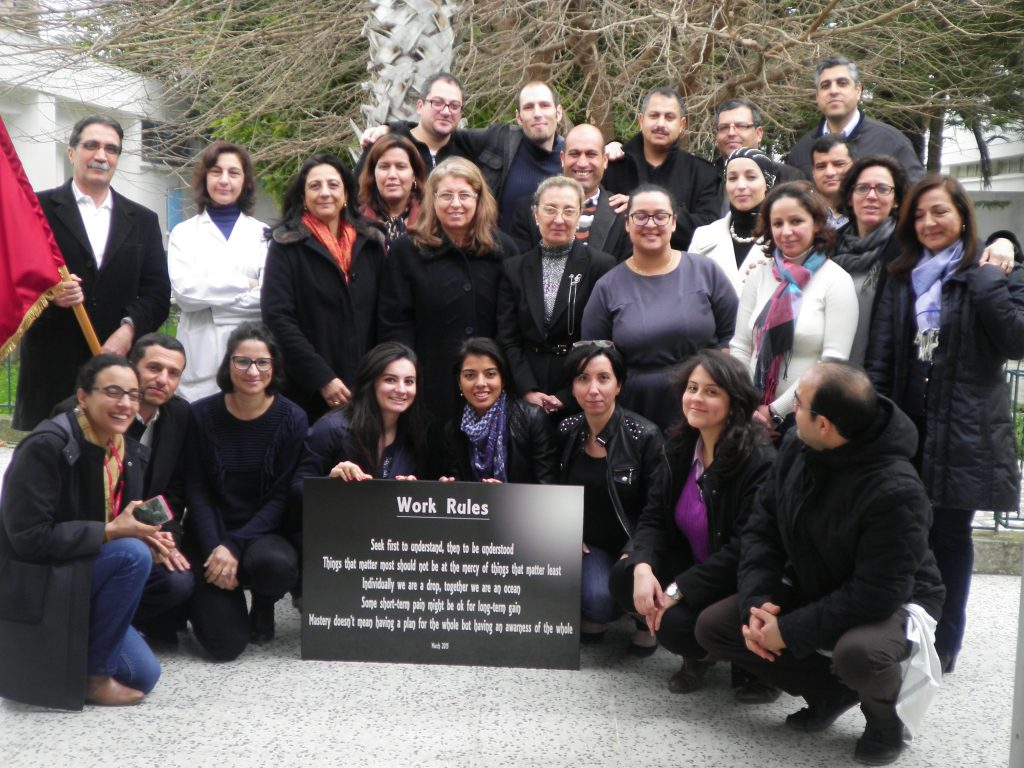
The course consists of recorded lectures, required readings, a weekly online discussion forum, quizzes, self-reflection assignments, and a final verbal presentation. It is targeted to practicing health care professionals and public health specialists who already have some experience managing people. In most cases, LMIH participants gather in weekly site-specific, in-person discussion groups led by a volunteer facilitator to discuss the material and apply it to their particular linguistic, cultural, social, and political environment.
“We just finished our site discussion this afternoon and the level of contribution and application to our various office settings was wonderful. …I have told my Chief Executive … about the course and he is thinking of asking all Management Staff to do it compulsorily in the next episode.”
–2017 course site facilitator
Due to high enrollment, the course is now offered twice a year, with a completion averaging 84%. Approximately 4,500 individuals are enrolled in the latest offering of the course, representing a nine-fold increase in five years. More than 10,000 health workers in 65 countries have graduated from LMIH since 2012.
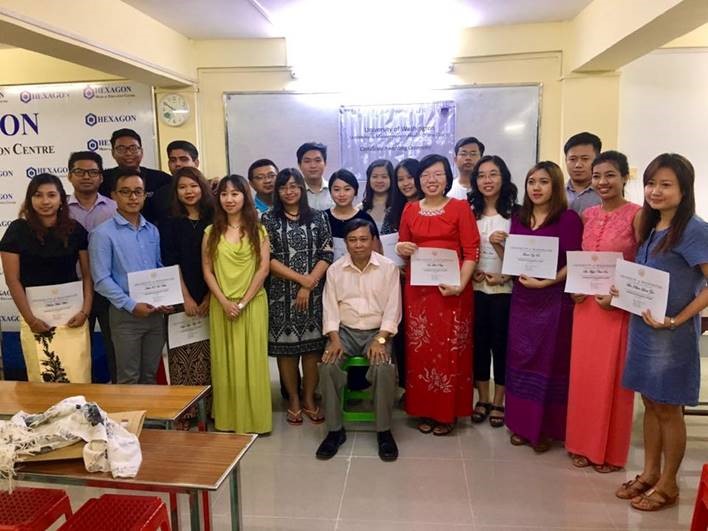
According to a survey conducted by eDGH, more than half of graduates from the spring 2016 cohort now mentor colleagues on leadership and management-related job tasks. In addition, 67% said they were given new responsibilities or projects as a result of course completion, and 74% reported that they had maintained contact with other students from their sites.
“We consistently hear that how empowering the course is,” said Anya Nartker, E-Learning Project Manager with eDGH. “The course uses a blended model, where participants are required to meet with their local site each week to apply what they are learning in the course, and share problems that they support each other in solving.”
I like the idea of all students teaming together and working together despite their backgrounds and level of education. There were many who were highly educated and some who were moderately [educated], and we all understood and accommodated each other.
–2016 course participant from Kenya
Course graduates have requested a deeper exploration of certain topics introduced in LMIH. As a result, a certificate series of three online courses is being developed that will include LMIH; a new course titled Global Project Management; and a third online course, Fundamentals of Implementation Science.
The Global Project Management online course will be offered as a stand-alone course from July-September 2018, co-taught by Dr. Downer; I-TECH Deputy Director, Chichi Butler; and I-TECH Senior Program Manager, Harnik Gulati. The certificate will be offered in 2018.
The following post was written in partnership with PATH‘s Better Immunization Data (BID) Initiative.
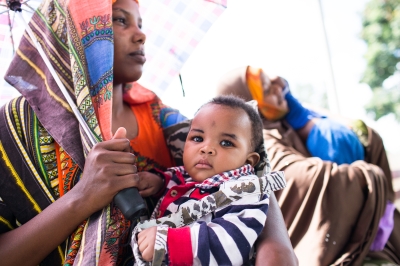
The digital health landscape is rife with disconnected systems that make it challenging to aggregate information and improve the health of populations. After years of disjointed experiences, multiple organizations and governments have found that multi-platform, standardized, and connected information systems are critical to allow health care providers and decision makers access to timely and accurate information.
In this spirit, the International Training and Education Center for Health (I-TECH) joined forces with PATH’s BID Initiative to prevent disease by developing a platform to better trace vaccinations in low-resource settings. As part of its Global Health Security award, I-TECH is localizing the BID Initiative’s Zambia Electronic Immunisation Registry (ZEIR), an app powered by OpenSRP which is an open source mobile health platform, for use in Siaya County, Kenya.
I-TECH reached out to the BID Initiative last summer to hear more about BID’s lessons learned. The two teams began collaborating in earnest last December, leveraging the BID Initiative’s large scope in Zambia and Tanzania with I-TECH’s expertise in working with the OpenMRS platform.
Parallel projects with common goals
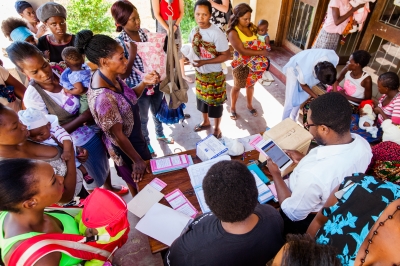
In Kenya, I-TECH has been tasked with building an electronic platform to capture immunizations when they happen. The aim of the project—conducted in partnership with the Kenyan Ministry of Health, the CDC Global Health Protection Division, and the CDC Global Immunization Division—is to improve immunization coverage. This is done by tracking and monitoring who is due for which vaccine, starting with population-level coverage within a single county, thus decreasing the chance of outbreaks of vaccine-preventable diseases.
Similarly, the BID Initiative has been working with the Ministry of Health and nurses in Tanzania and Zambia to develop an electronic immunization registry, among other data use tools, to ensure data becomes more accessible and useful to health workers. This, in turn, can help with decision making to prevent vaccine stockouts and enable follow-up with patients who have not returned for needed vaccines. BID’s learnings provided an opportune starting point for I-TECH’s work.
“ZEIR provides all of the workflows we need,” says Craig Appl, I-TECH Senior Technical Advisor for Health Informatics. “It already considers how users will interact with the application. It collects immunization data in a user-friendly manner, allowing health care workers to more accurately administer and record childhood immunizations and to more easily follow-up with children defaulting on their immunization schedule.”
Improvements through open source collaboration
I-TECH and BID have turned to Ona, a social enterprise based in Nairobi, Kenya, committed to fostering change by building information systems infrastructure. BID began working with Ona in January 2017 to adapt the OpenSRP system to Zambia’s national immunization program. This open source development process has been critical to the success of both teams and represents the collective knowledge of a community of developers known as the THRIVE Consortium.
“We simply couldn’t do this if OpenSRP and ZEIR software development was closed source,” says Appl. “The documentation, source code, and community wiki are all open for collaboration. Our team is able to actively track the improvements across the community, receive value where others have built features, and contribute where our projects align. Through open collaboration, we have many more individuals and teams working to improve health outcomes where we work.”
Laurie Werner, BID’s Global Director, agrees, pointing out that each new tool and iteration of the app is more adaptable and affordable than the last. “I-TECH is able to see solutions and propose solutions,” says Werner, “that’s the beauty of open source software.”
Matt Berg, CEO of Ona, views the OpenSRP app created for both projects as a customizable springboard that could potentially accommodate additional modules for antenatal care, malaria data, and maternal and child health.
“From our prior work with BID, we had this great starting point that another country or group could take and adapt and get up and running quickly,” says Berg.
Adaptability equals cost efficiency
Cost is a major driver for any implementation. Until now, it has been more cost efficient to build specific functionality on top of popular generalized information systems and tools, which decreases adaptability. Initial investments in the BID and I-TECH projects have allowed for both flexibility and specificity.
“We tend to focus too much [in the digital health field] on localization, and not on great design,” says Berg. “I think our success in Zambia and Kenya validates the importance of good design…and shows the potential of replicating in places for a fraction of what was originally invested.”
This collaborative environment and focus on adaptable design increases cost efficiency and allows the BID Initiative to fulfill the intention for its solutions to be used in multiple contexts.
“This is the core of the BID Initiative’s theory,” says Werner. “Effective electronic immunization registries have to be adapted to a country’s context and specific needs. Each time you do that, it becomes less and less of a financial investment for future countries.”
This blog post was supported by the Cooperative Agreement Number, U2GH001721, funded by the U.S. Centers for Disease Control and Prevention. Its contents are solely the responsibility of the authors and do not necessarily represent the official views of the Centers for Disease Control and Prevention or the Department of Health and Human Services.
As a key member of the Kenya electronic medical record (EMR) system technical working group, I-TECH works to implement and standardize the EMR systems used in the management of national HIV and AIDS care and treatment data. Similar efforts have focused on ensuring that different electronic systems can communicate with one another (interoperability) and that health care workers, administrators, and staff are well trained to use and maintain them.
In 2012, I-TECH designed and developed an electronic medical records (EMR) system, KenyaEMR, to support the care and treatment of HIV/AIDS. KenyaEMR is built on the OpenMRS platform. I-TECH supported the implementation of KenyaEMR in over 300 health facilities throughout Kenya—one of the largest open source EMR rollouts in Africa.
I-TECH Tanzania has implemented many pre- and in-service training initiatives and materials, as well as adopted TrainSMART. Continue reading “Innovative Training Models in Tanzania”
In October 2016, the Government of Tanzania adopted the World Health Organization’s (WHO) Treat All recommendations. The adoption of WHO recommendations, coupled with the Government of Tanzania’s acceptance of the UNAIDS 95-95-95 targets represents a significant commitment to the fight against HIV in Tanzania.
Continue reading “Differentiated HIV Service Delivery Models in Tanzania”
To address the UNAIDS Sustainable Development Goals for elimination of HIV/AIDS, tuberculosis, malaria and other diseases by 2030, and the PEPFAR 3.0 goals, I-TECH leverages the technical expertise of its universities and partners, the broad experience of its funders, and best practices from 15 years of implementing programs.
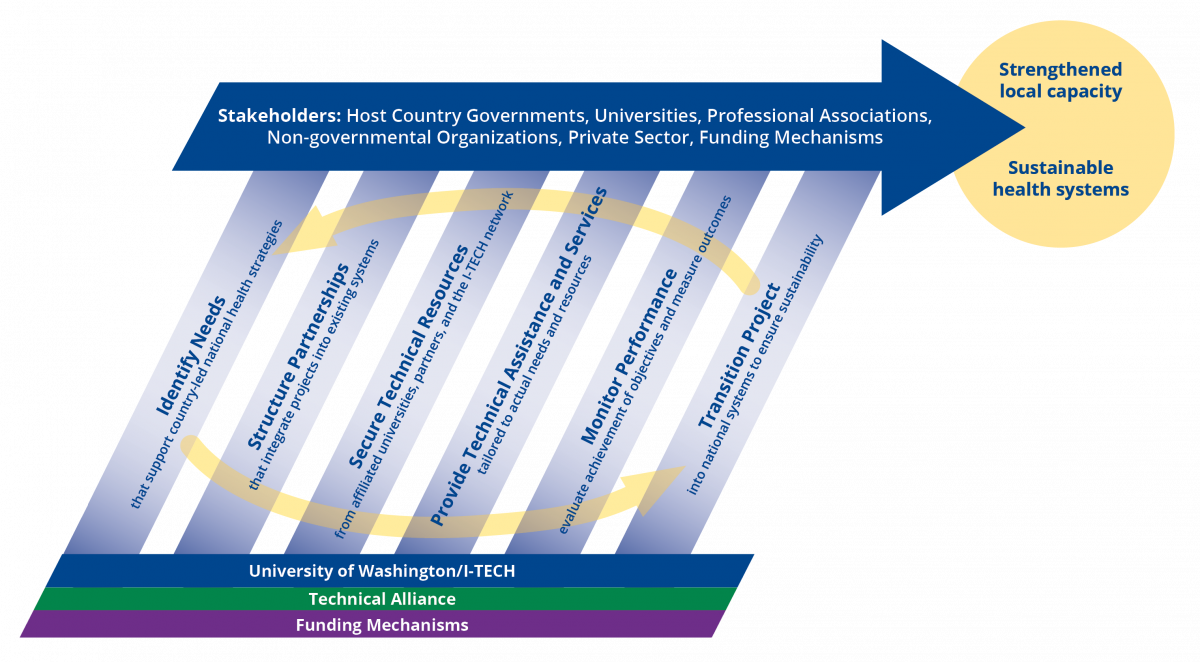
The International Training and Education Center for Health (I-TECH) works in partnership with host country governments, universities, professional associations, non-governmental organizations, private sector groups and funding agencies to strengthen local capacity and build sustainable health systems.
I-TECH follows a partnership model that guides the provision of technical services and technical assistance toward local ownership and sustainability, creating projects and programs that can be readily transitioned into national systems.
Based at the University of Washington, I-TECH draws upon a strong global network of public health professionals. The approach described in this document is customized in each country to respond to local needs and priorities. In addition, each I-TECH country office team aligns the model with the unique Partnership Framework Implementation Plans of the partner host government.
I-TECH works with host country governments to assess existing health systems and identify specific areas where the delivery of health care could be improved. This early collaboration helps to ensure that technical assistance accurately reflects the country’s specific health strategies and priorities.
In each partnership, I-TECH develops roles, responsibilities, and timelines based on a long-term vision of integrating projects into existing national systems. As part of this vision, I-TECH recognizes and leverages the strengths and resources of national systems, building on and maximizing these efficiencies. The partnerships that emerge are attuned to the needs, realities, and structure of host country systems. Thus, they build and maintain lasting capacity within host country systems, maximize cost-effectiveness, and produce projects that can be more readily scaled up to meet national goals.
As a center based at the University of Washington, I-TECH has direct access to a wide variety of technical specialists. In addition, I-TECH draws upon a robust global network of locally based public health professionals. These specialists provide a wide range of technical expertise to meet project needs.
I-TECH is committed to technical services and technical assistance approaches that build upon and support the existing strengths of local health systems. In addition, I-TECH prioritizes the use of local and regional expertise, an approach that builds the capacity of local experts to meet locally determined needs.
I-TECH implements projects within a quality improvement framework designed to track progress in institutional capacity building and guide successful implementation. Using the framework, implementers monitor the progress of each project against specific benchmarks of success; for example, the progressive transfer of skills and capacity to local institutions. This methodology ensures that objectives are met and provides data to adjust approaches as projects evolve.
The ultimate goal of I-TECH’s partnership model is to improve health outcomes by strengthening local capacity and building sustainable health systems. I-TECH’s technical services and technical assistance are tailored from the initial planning stage to produce projects that can be successfully absorbed into national systems within mutually determined and realistic timeframes. Recognizing that a successful transition takes time, I-TECH offers transition support in a variety of technical areas including quality improvement and grant management.